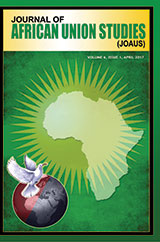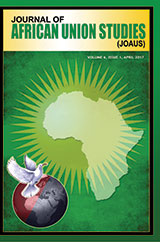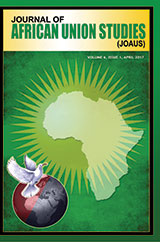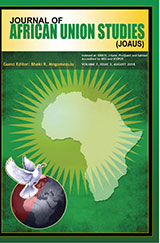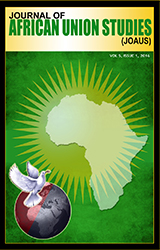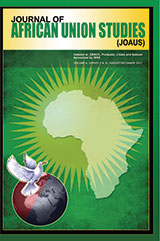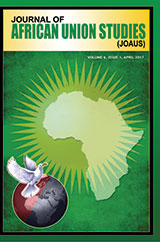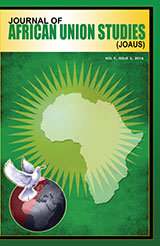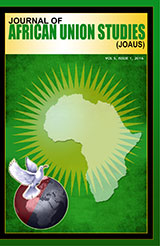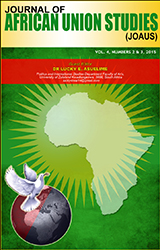
 editor@adonis-abbey.com
editor@adonis-abbey.com ![]() UK: 0207 795 8187 / Nigeria:+234 705 807 8841
UK: 0207 795 8187 / Nigeria:+234 705 807 8841
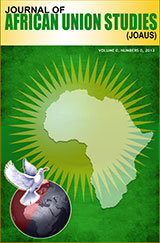
Publication Frequency: Tri-annually (Three times a year). ISSN: 2050-4292 E-ISSN: 2050-4306. SCImago Journal Ranking for 2024: Quartile: Q4: SJR: 0.128
View Table of Content
Journal of African Union Studies (JoAUS) Volume 8, Issue 2, August 2019 Editor: Dr. Khondlo Mtshali
On July 7, 2019, African leaders met in Niger to launch the African Continental Free Trade Area. This is a significant step in furthering the African Union’s vision of uniting the African continent. The essays in this issue address different dimensions of the process of African unity. Mngomezulu’s paper, reiterates the goal of the African Union (AU) to enhance Africans’ abilities to take their own destiny in their own hands. Mngomezulu invites us to assess the AU’s performance in providing African solutions to African problems. He calls on us to celebrate AU’s successes and learn from the challenges the continental body faces. It is important to note that the achievement of AU’s goal presupposes a consciousness of common identity. Phakathi argues that AUs instruments such as African Common Position on Migration and Development and the Protocol to the Treaty Establishing the African Economic Community Relating to Free Movement of Persons, Right of Residence and Right of E...
View Table of Content
JOURNAL OF AFRICAN UNION STUDIES (JoAUS) Volume 7, (Issue 3), December 2018 Editor Author: Khondlo Mtshali
Editorial Khondlo Mtshali University of KwaZulu-Natal, School of Social Sciences, KawZulu-Natal, South Africa Email: khondlo@hotmail.com or mtshalik@ukzn.ac.za The Sirte Declaration set the primary goal of the African Union (AU) as “accelerating the process of integration in the continent to enable it to play its rightful role in global economy while addressing multifaceted social, economic and political problems compounded as they are by certain negative aspects of globalization.” Thus, one of the objectives of the African Union is to “achieve greater unity and solidarity between African countries and the peoples of Africa” (African Union, no date). However, the goal is not simply to have a united Africa, but an Africa that has a shared vision. The Akans of West Africa have a saying that “Crisis is the occasion of proverbs” (Sekyi-Otu, no date). Crisis challenges us to think of alternative ways of dealing with our conditions. Cri...
To subscribe to any of the journals, Please Email Us.




